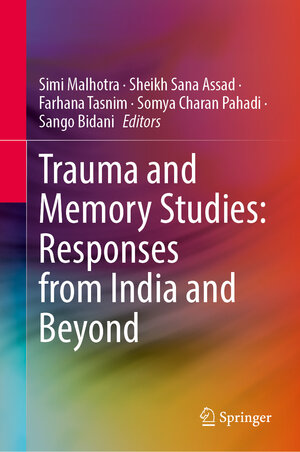
Trauma and Memory Studies: Responses from India and Beyond
herausgegeben von Simi Malhotra, Sheikh Sana Assad, Farhana Tasnim, Somya Charan Pahadi und Sango BidaniThis edited volume offers a comprehensive revaluation of Trauma and Memory Studies, foregrounding perspectives from India and beyond. It critically interrogates the prevailing Euro-centric paradigm within the field, advocating for the amplification and contextualization of voices originating from South Asian spatial and temporal contexts. Departing from conventional West/North-centric narratives, the text prioritizes the narratives of historically marginalized survivor groups, encompassing individuals affected by pivotal events such as the 26/11 terror attacks in Mumbai, the Bengal famine, the dispersion of the Indian diaspora, and the experiences of incarcerated populations in Iran, Kenya, Palestine, etc. Through an in-depth exploration of societal mechanisms for remembrance and coping strategies vis-à-vis traumatic episodes, such as the Jallianwala Bagh massacre, the book unveils the intricate interplay of political, cultural, and social dynamics. It explores the complicated dynamics of post-colonial and post-conflict societies in India by using a range of interdisciplinary methodologies, such as examining artistic expressions, oral histories, and digital media. It discusses the ongoing debate between hegemonic historical narratives and the often-marginalized voices of subaltern communities. This book serves as an indispensable resource for academics, students, and researchers committed to the exploration of trauma and memory within non-Western contexts.



